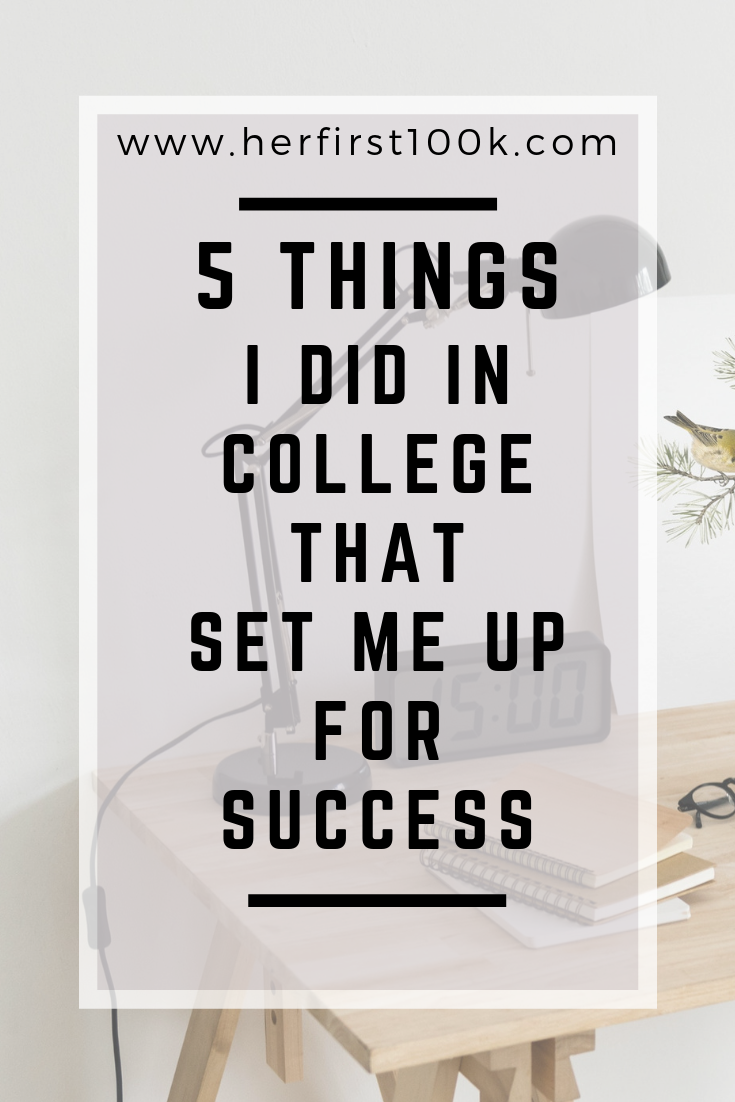The following article may contain affiliate links or sponsored content. This doesn’t cost you anything, and shopping or using our affiliate partners is a way to support our mission. I will never work with a brand or showcase a product that I don’t personally use or believe in.
Setting Yourself up for Success After College
College is an overload of incredible possibilities.
Your first foray into freedom, college offers you the chance to meet new people, have new experiences, and gain knowledge that will shape your life.
However, you won’t realize just how many aspects of college will fully equip you to deal with all the challenges the “real world” has planned for you — until you’ve left.
Post-grad, my career started with landing a digital marketing contract worth tens of thousands, and a full-time position as the head of marketing and communications for a global security company — all before I turned 22. And I can tell you for a fact that my success after I graduated was entirely because of my hustle while at uni.
Here are the exact steps I took to make sure I was taking full advantage of everything my university offered to guarantee a fulfilling career.
1. An informational interview a week
Every week of my senior year, I made a point to have a formal meeting with someone new in my industry. I ended up meeting dozens of marketers, PR professionals, and entrepreneurs — both for coffee and video chats. It was imperative to figuring out what I wanted to do after graduation, and for making priceless connections that gave me advice (and job prospects.)
2. Took a campus job that was directly related to what I wanted to do
In addition to internships, I worked on campus to both contribute to my tuition and help me gain valuable skills I could leverage for a post-grad job. I worked my way up through our yearbook staff (from writer to copy editor to editor-in-chief) and used the completed yearbooks as part of my portfolio. It helped demonstrate my writing, time management, leadership, and self-motivation skills; and gave me the real-world experience employers are looking for (even though I hadn’t graduated yet.)
READ MORE: The 5 Questions I Ask in Informational Interviews
3. Attended free events
You don’t realize how many incredible opportunities there are for growth until you’ve left college. My university had weekly panels, lectures, networking functions, and more. These free events can help you discern where you’re heading, and give you valuable advice. Make an effort to take advantage of every single event you can attend, and don’t leave when it ends — make an effort to stay and talk to the speakers or panelists. Ask them for an informational interview!
4. Utilized the career center
Again, it’s free and you’d be dumb not to go. Many students only use the center when they’re seniors (when the panic has set in), but I would encourage you to schedule an appointment as soon as possible (yes, even the first semester of freshman year.) They’ll help you take the right classes for your passions, connect you with internship opportunities, look over your resume and cover letter, and so much more. And if you’ve graduated, many universities (including mine) open their career center doors to alumni too!
5. Took classes outside of my major
Even though I regretted this decision when I was drowning in papers to write (I promise, it was worth it), taking classes outside of my degrees ended up changing my study. I have a dual degree in Organizational Communication and Theatre and decided to take a 400-level PolySci class about terrorism — just because I was fascinated by it. That ended up being the best decision of my college career and inspired me to write my senior thesis (a Comm thesis, nonetheless!) about how ISIS recruits Western women via social media. I ended up winning awards and presented my thesis in front of the entire Communication department. Such an incredibly exciting experience I wouldn’t have had if I didn’t diversity my studies.
College is such an incredible time in one’s learning journey. Taking steps to prepare for your career — and taking advantage of every opportunity college provides — can lead to a great job after school. Good luck!
RESOURCES
I get asked all the time: what are your favorite money management tools?
Treasury: We’re building a one-of-a-kind, non-judgemental community where you can learn exactly how to invest, build wealth, and receive exclusive access to Her First $100K.
Personal Capital: The tool I check daily, Personal Capital is the best tool for tracking your net worth and your progress towards goals like saving, debt payoff, and (yes!) $100K.
The $100K Club Facebook Group: Need some honest money conversations in your life? Join my free community to get your burning questions answered.



